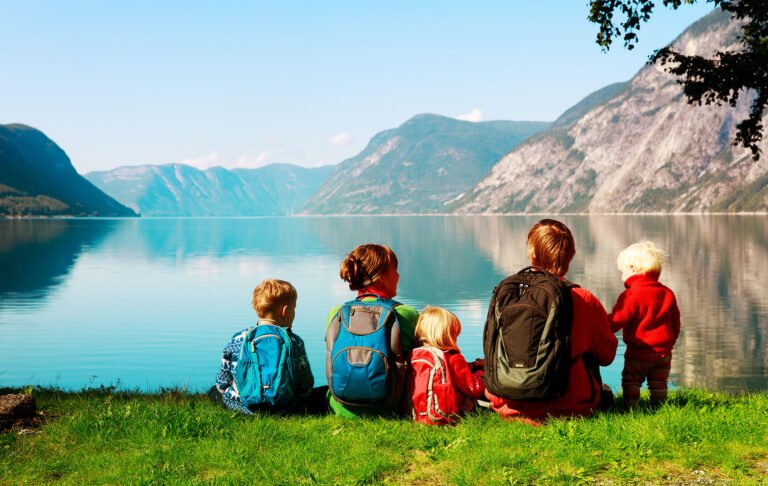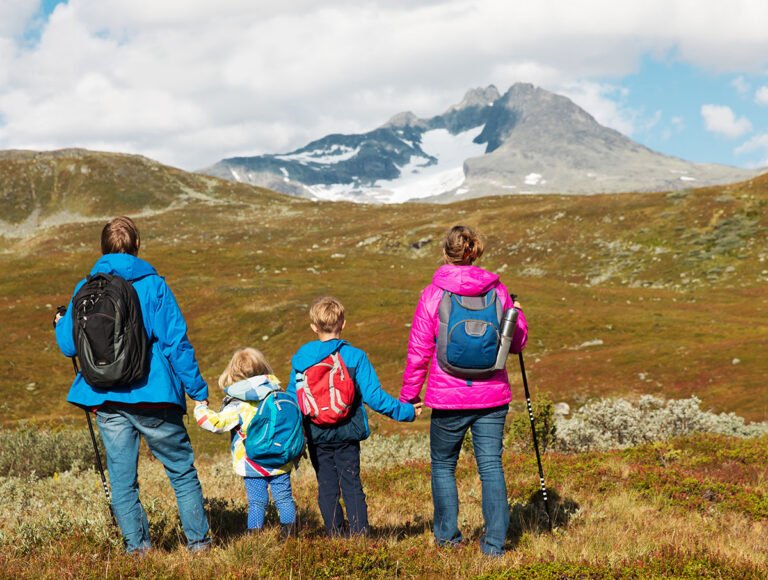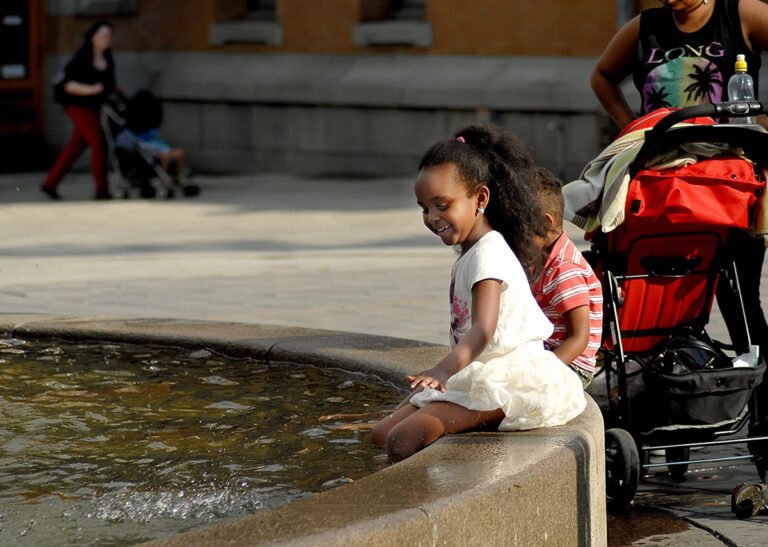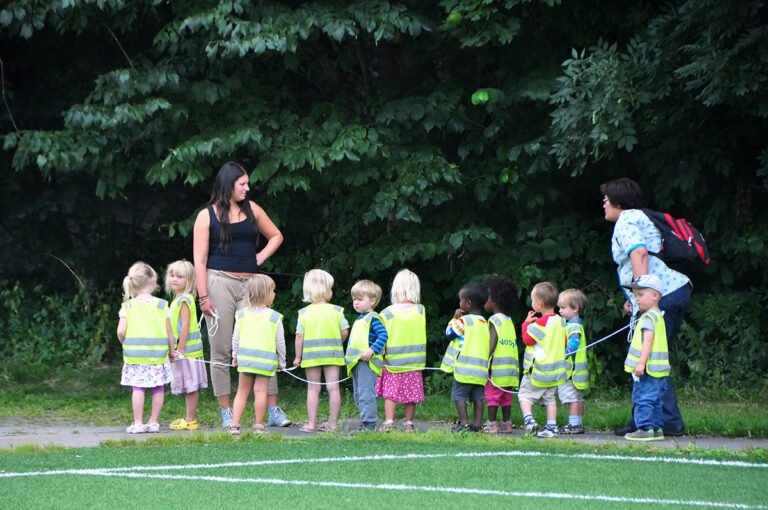The story of why one Norwegian-Canadian couple chose to move back to Norway to raise their children.
We lived in Toronto for several years, but when I was pregnant with my second child my Canadian husband and I decided to move to Norway. I am sorry, Canada – you put too much emphasis on work. And it was time to leave.

It had nothing to do with safety, opportunities, health care, or standard of living; all of which is excellent in Canada. I am speaking of the “family first” approach which is essential to all Scandinavian countries, and part of the Nordic model.
In addition to people having a higher quality of life; it most likely has positive effects on gender equality, employment rates, fertility rates; and paradoxically, productivity. And yes – there are challenges too.
Parental leave
Norway is ranked as the #4 country in the world for parental leave. Parents have a total of 49 weeks with 100% wage coverage or 59 weeks with 80% pay.
The benefits of leave for fathers
When my family is visiting from abroad, they are surprised to see groups of fathers with strollers walking around during work hours.
Fathers have 16 weeks minimum paternity leave, and bond with their children very early; they have no choice. How this affects future generations is yet to be seen, but this special connection may even have positive effects on mental health.

If we were to continue to live in Canada, my husband would probably work long hours and I would take more care of the children. He would not have the opportunity to create the same bond with them.
Sick days for children
The Norwegian Government is very generous when it comes to granting leave when our children are sick.
There are always some who take advantage, but my experience as a HR-manager is parents with young children are extremely efficient. Giving them benefits increases loyalty, which makes them work even harder.
Also, society steps in 100% when children are seriously ill, or even dying. Knowing we don’t have to worry about work in such situations makes us feel safer, which is beneficial to general health. I am always certain all of this is a profitable project.
Cheap daycare
Parents in Norway spend 8% of average income on daycare, compared with 37,3% in New Zealand, 35,7% in the UK, and 33,3% in the US. The government also subsidizes private daycare and prices are more or less the same everywhere.
General acceptance of children
When we first moved to Norway, my Canadian husband was amazed to see that it is commonplace to see colleagues and clients bring their kids to the office, take a child to the dentist during work hours, or leave at 4pm every day because the after-school program is closing.

My impression is that children in Norway are less supervised and have more autonomy than in most countries. This is most likely due to overall safety.
Norway’s societal trust is also very high. A common sight is strollers lined up outside the café while parents sit inside drinking coffee, watching with a casual eye. I don’t think it is even legal in some countries.
There is general acceptance of nursing anywhere. Even The Storting’s administration is looking into if the delegates are allowed to nurse inside the Parliamentary Hall.
Gender equality
Norway is ranked #3 on The Global Gender Gap Index, while Canada is #25, and US #23, ranked after countries like Nicaragua and Rwanda. According to Statistics Norway, there has been an increase in female leadership. In 2019, 37% of all leaders were women.
My prediction is that if Norway continues to keep today’s approach to parental leave (this depends on the political situation), gender equality will increase even more.

By the way, my Canadian mother-in-law still thinks mothers should stay at home to raise children, but she is particularly old fashioned.
Does it affect productivity?
You would think we are less efficient? Not true. Norwegians work on average 38 hours per week, and Norway is one of the most productive countries in the world.
We are extremely efficient and task oriented. Working long hours is highly overrated and I am not at all surprised we are ranked top.
We also have integrated systems and very little bureaucracy. If you change your address, all IT systems update automatically including your banking and work systems.
I haven’t lived in Canada in 10 years, yet for some reason my Canadian in-laws still receive an annual letter from the Ministry of Health reminding me to have a mammogram. Clearly they didn’t get the memo that I left a decade ago. This kind of systemic inefficiency would never happen in Norway.
There are downsides
Yes, taxes are high, but not as high as you would think. Income tax is around the European average. However, sales tax in Norway is high.
The main downside for employers is they spend more time hiring and training, and the predictability is reduced. For society, it is problematic when the population is aging. We need more people working and not receiving benefits.
However, none of these downsides were enough to tip the balance for us. Norway’s policies and general societal attitude to children means there is no better place for us right now.





As a Canadian raising a child in Bergen, I’m sorry, but this essay seems slightly insane. “Systemic inefficiency wouldn’t happen in Norway”? Norway’s medical, educational, and bureaucratic systems are FAR less responsive, accountable, and “customer-oriented” than in Canada. Here you are a faceless number, in Canada you are a person. The Norwegians I know who have spent time in North America are amazed by the difference.
Sooner or later you run out of someone else’s money